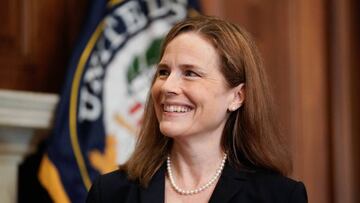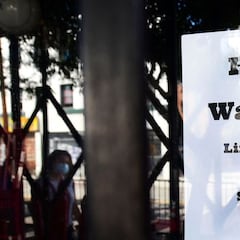US Supreme Court rules that Indiana University vaccine mandate is constitutional
In the first major legal challenge against vaccine mandates, Justice Amy Coney Barrett ruled that the institution is able to implement a vaccination requirement.


On Thursday Supreme Court Justice Amy Coney Barrett rejected an attempt from a group of students to prevent Indiana University from implementing a vaccine mandate. This could be a watershed ruling as numerous private businesses and public entitles look to make their premises safer.
Barrett provided her judgment without referring the matter to the full court, due to her jurisdiction over the appeals court that was called upon to rule in this case. The filing was the first concerted effort to challenge the legal basis of vaccine mandates and the school is now expected to introduce the new rules when students return in the fall.
Why did Amy Coney Barrett rule in favour of the university?
The lawsuit, filed on behalf of a group of eight students, claimed that the university was violating their constitutional rights to “bodily integrity, autonomy and medical choice.” However Justice Barrett dismissed the request for emergency relief without providing comment, suggesting that there was no legal justification for their application.
Justice Amy Coney Barrett denied an emergency petition that called on the Supreme Court to block Indiana University's coronavirus vaccine mandate.
— Axios (@axios) August 12, 2021
The denial upholds lower court rulings that deemed that the school had a right to mandate vaccinations.https://t.co/UOKe2EUb9c
Despite this, the New York Times reports that the exemptions to the requirement allowed by the university’s own rules (covering ethical, religious and medical reasons) “virtually guaranteed” that anyone who desired exemption would be granted it.
The challenge arrived at the Supreme Court after a three-judge panel of the United States Court of Appeals for the Seventh Circuit in Chicago refused to block the university from implementing the vaccine mandate.
Explaining their verdict, they wrote: “If conditions of higher education may include surrendering property and following instructions about what to read and write, it is hard to see a greater problem with medical conditions that help all students remain safe while learning.”
Ruling could spark of wave of vaccine requirements
After months of unease from big business, the introduction of vaccine requirements for employees has accelerated after similar steps were taken by the federal government. The Department of Veterans Affairs was the first to require public-facing staff to be vaccinated against covid-19. Last week President Biden introduced extra safety protocols for any federal employee who was not vaccinated.
CNN national security advisor @juliettekayyem says there should be a vaccine requirement for airline passengers "to put a burden on the unvaccinated so they begin to get vaccinated."
— Anderson Cooper 360° (@AC360) August 7, 2021
"We have to continue with the carrots... but we have to begin to use the sticks," she says. pic.twitter.com/zAnYrBPHlS
Related stories
Following that initial decision the likes of Google, McDonald’s, Microsoft and Walt Disney have all introduced rules requiring that at least a proportion of their workforce get the vaccine before being allowed to the workplace. Today’s ruling could be a consequential one, showing that entities can impose vaccine requirements, albeit with some exemptions allowed.
A survey by law firm Fisher Phillips last week found that 15% of American companies were planning or considering to introduce a vaccine mandate for staff. In May that figure stood at just 4% and it is likely to grow considerably on the back of Thursday’s Supreme Court ruling.

